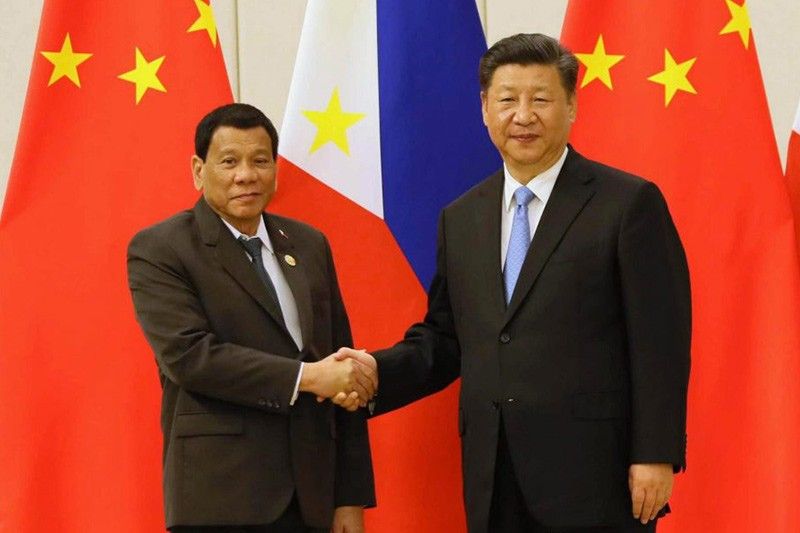With mere words, Duterte can lose to China rights Philippines won in arbitral ruling

MANILA, Philippines — President Rodrigo Duterte may bind the Philippines if he unilaterally declares that he is waiving the country's rights stemming from the 2016 arbitral ruling, Acting Chief Justice Antonio Carpio warned on Thursday.
In a forum marking the second anniversary since the United Nations-backed tribunal ruling was handed down, Carpio said that under international law Duterte, as the representative of the state, could bind the country in declarations in a dispute.
He said this doctrine is known as the doctrine of unilateral declaration and would be consummated if China accepts the pronouncement.
"If the president says I am setting aside the ruling, the doctrine is that that binds the country if it is accepted by China. That declaration is a declaration against the interest of the state and it will bind that state because the president is the representative under international law," Carpio, one of the strongest advocates of the country's rights to its territory in the South China Sea, said.
Carpio explained that Duterte had this power under international law, something that is not accorded to him under domestic statutes.
Carpio said he immediately communicated with the Department of Foreign Affairs when the president said that he was setting aside the arbitral ruling.
He said that he asked the DFA to clarify that the move was only temporary and issue a statement before China accepted the declaration.
"We could have waived the ruling if the Philippines did not clarify," he said.
In July 2016, the Hague tribunal invalidated much of China's expansive claim to the South China Sea based on its so-called historical rights.
The ruling stemmed from the case filed by the Philippines against China, which in recent months has been slammed for its aggressive assertion of its claims.
It has also installed missiles and landed aircraft on its artificial islands in the South China Sea.
Carpio also said he did not accept claims that China had de facto control over the South China Sea because naval powers were conducting freedom of navigation and overflight operations in the regions.
"China is able to intimidate us because China has built air and naval bases in the Spratlys but the naval powers still sail and fly," Carpio said.
"The South China Sea has not become a mare nostrum of China, and I don't think it will ever become a mare nostrum because the naval powers of the world stopping or ceasing sailing and flying," he added.
Carpio and Jay Batongbacal, a maritime law expert from the University of the Philippines, said the strengthening of our naval and air forces would go a long way in establishing a "credible deterrence" against China's aggressive militarization.
- Latest
- Trending

































